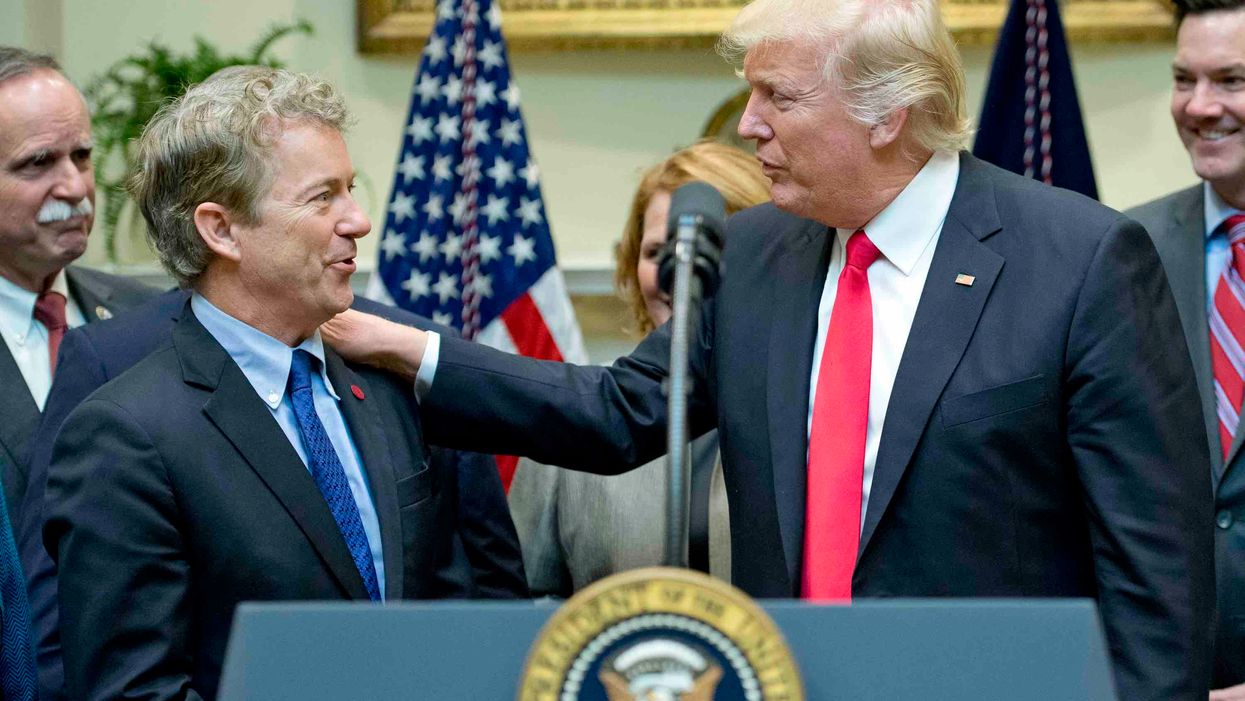
Photo by Ron Sachs-Pool/Getty Images

Sen. Rand Paul is on the right track
Sen. Rand Paul's (R-Ky.) foreign policy beliefs have been ruffling feathers on the left and the right since he took office in 2011.
Like his father before him, Rand is no stranger to criticism from both sides of the aisle when it comes to his cautious and conservative foreign policy views.
For decades, politicians in the Republican and Democratic parties have beat the war drums against the Middle East and pretty much any other nation that dares to differ from the U.S. culturally or politically. While there are certainly times when military conflict is warranted, the United States has abandoned the restrained and cautious foreign policy of George Washington.
Since 9/11, the United States has sent tens of thousands of troops to fight wars in the Middle East, with many soldiers being younger than the wars they fight in. Too many of our men and women in uniform have left the United States to fight the “War on Terror," a war that has largely undefined goals and an ambiguous end date.
While President Barack Obama promised to end the wars in Iraq and Afghanistan, he failed to do so, instead expanding the United States' involvement in the conflicts and authorizing use of U.S. forces in Syria as well, all the while spending trillions of dollars in the process. Thousands of American troops remain actively engaged in these conflicts.
With regard to Russia, Obama pretended to adopt “tough guy" rhetoric and policy positions against Russia, with former Secretary of State Hillary Clinton hoping to follow in his footsteps with her own run for office, but during their tenures both failed to bring about any significant change from the Bush administration. In fact, they made things worse — making illicit deals with the Kremlin with promises of “more flexibility" after the 2012 election.
In Sen. Rand Paul, America has an alternative.
Perhaps the most memorable example in recent history of an American politician engaging Russia directly with firm dialogue was when President Ronald Reagan successfully negotiated with Mikhail Gorbachev to tear down the Berlin Wall in the '80s.
It was under Reagan that “peace through strength" was exemplified in the modern era, and for arguably the first time, the country saw that a nation does not have to dominate its foes on the battlefield in order to triumph.
Today, the United States and Russia possess about 90 percent of the world's nuclear warheads.
Like Reagan, Paul knows that peace talks with Russia are vital if Americans want to avoid a foreign war that neither nation would win.
“We should have more dialogue with Russia ... we need better dialogue so we won't have an accidental nuclear engagement," the senator, who has consistently lobbied for an end to expensive foreign wars, said.
Paul's views have seemingly steered U.S. foreign policy under President Donald Trump toward a new direction.
Trump has adopted a new tone that will surely resonate with the American people, arguing that it is time to “bring the troops home" and end the useless foreign wars that the U.S. is currently involved in.
Since the budding friendship began, Trump has called for the withdrawal of American troops in Afghanistan and Syria.
After Trump announced that U.S. troops would be removed from Syria, Paul was one of the few who praised Trump's decision.
Trump noticed, and doubled down on his decision to bring the troops home, tweeting a quote from Paul:
It should not be the job of America to replace regimes around the world. This is what President Trump recognized in Iraq, that it was the biggest foreign policy disaster of the last several decades, and he's right...The generals still don't get the mistake.
Paul also defended President Trump's attendance at the controversial Helsinki Summit last year, maintaining that dialogue and diplomacy with Russia can help combat Islamic terrorism and potentially end the war in Syria.
“Russia doesn't need to be considered our friend. But we certainly have overlapping interests — Syria, Islamic terrorism and energy — that require us to have an open dialogue and relationship," Paul wrote in a recent op-ed for Politico.
While Paul hopes the United States will continue to engage in diplomacy with the Kremlin, he comes from a position of strength when criticizing Russia as well, authoring an op-ed in 2014 that slammed Vladimir Putin's invasion of Ukraine as a “gross violation of that nation's sovereignty and an affront to the international community."
In this regard, Paul shows the world that peace can be obtained without sacrificing or diminishing the democratic values America holds dear.
“Politicizing international affairs is a dangerous game, but that hasn't stopped far too many in Washington, who seem to have forgotten that a vital part of keeping America safe and secure is avoiding war through strong and consistent diplomacy, from playing politics," Paul said.
In calling for an end to the foreign wars the United States seemingly finds itself ever-immersed in, Paul embodies the “real patriot" George Washington referred to in his farewell address, steering President Trump's foreign policy toward a cautious neutrality with other nations while distancing American troops and resources from endless conflict.